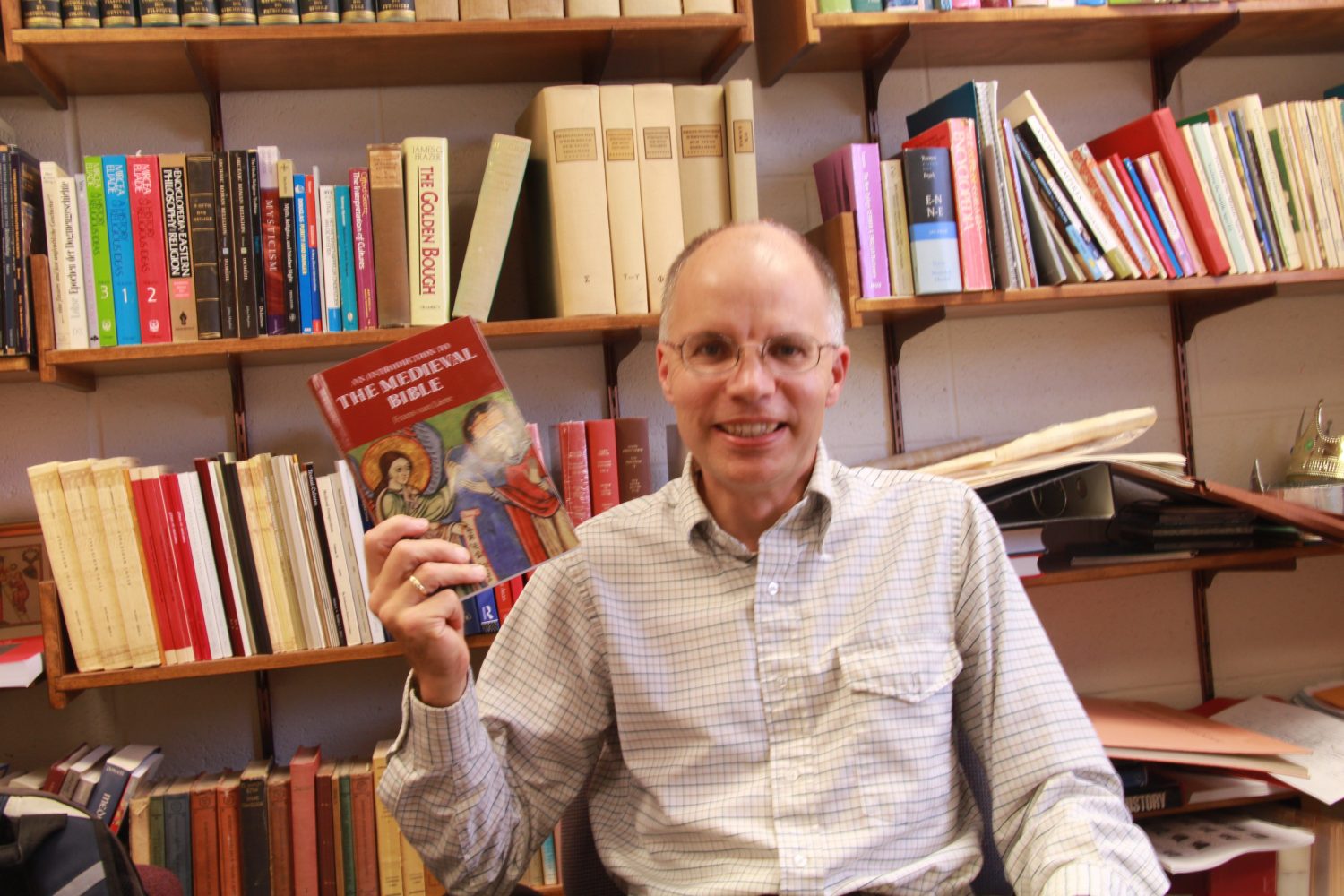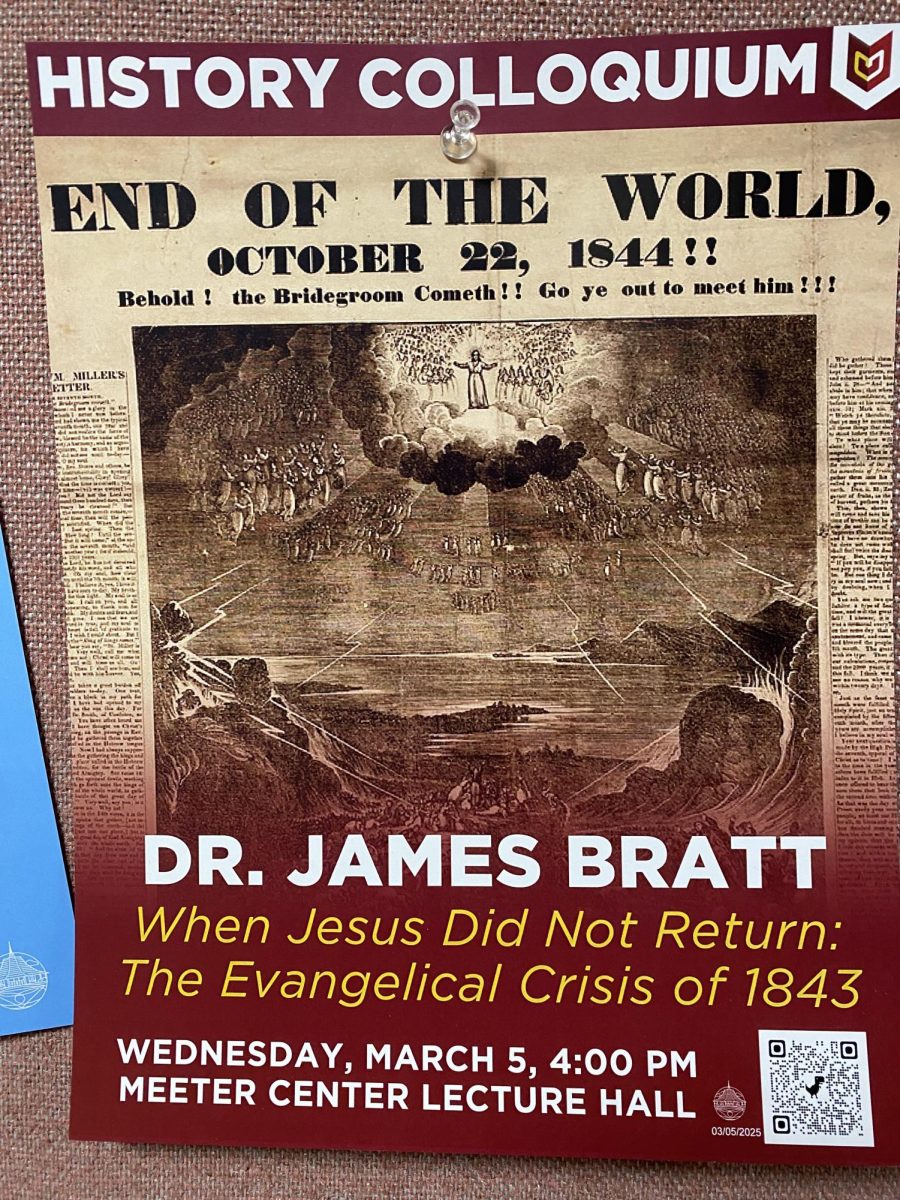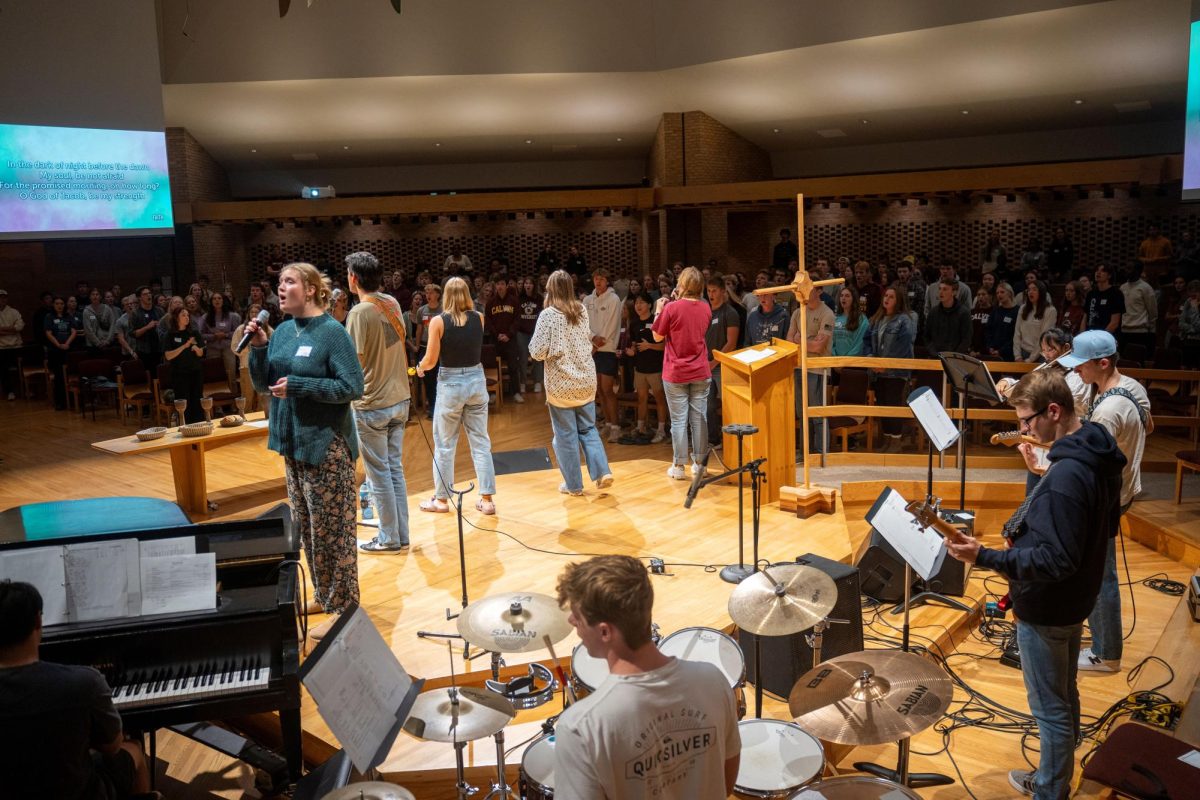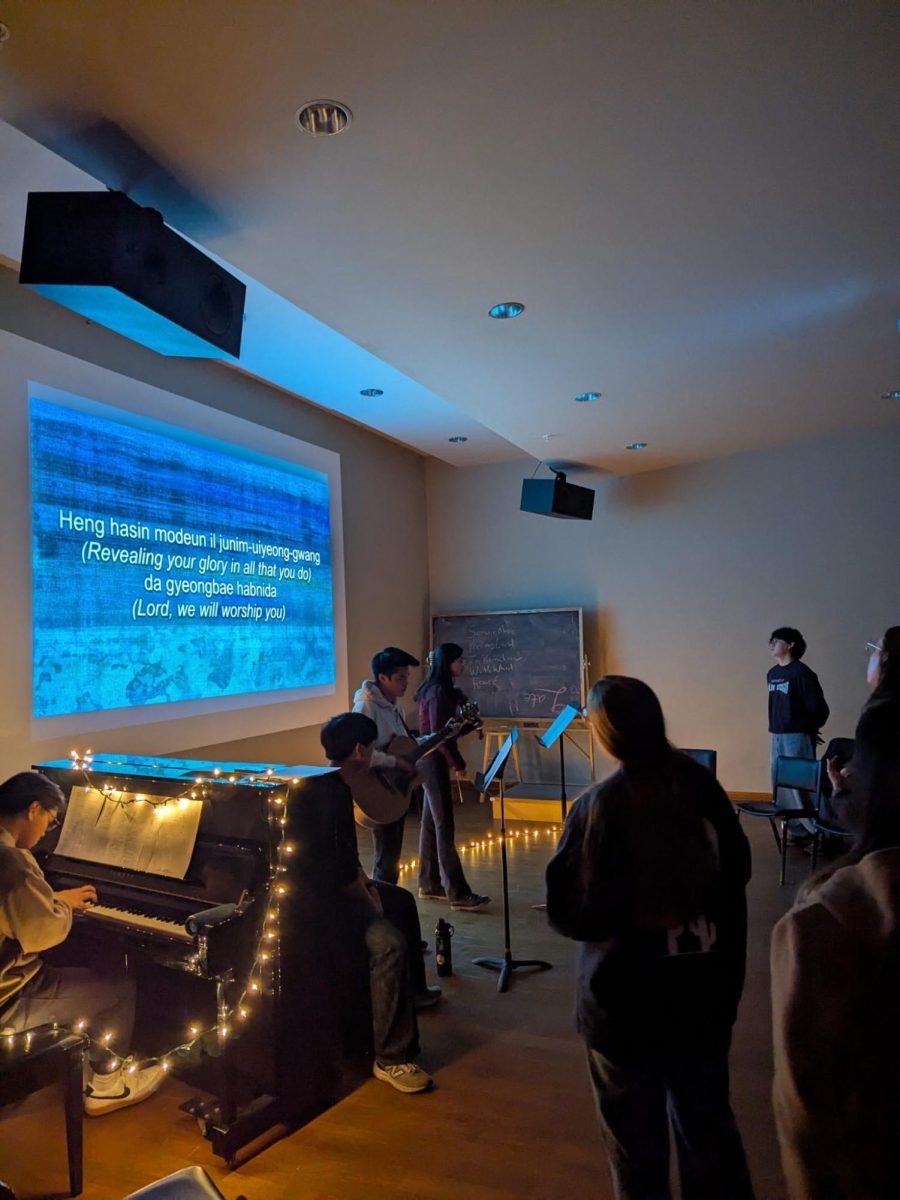History professor Frans van Liere presented his book “An Introduction to the Medieval Bible” in the Meeter Center on Thursday, Sept. 19. The book debunks some common myths about the medieval Bible.
Van Liere began, after introduction by colleague Will Katerberg, by saying typically book introductions involve “other people talking about your book over coffee and cookies.” That is what he assumed this would be when he was asked if he would be willing to do a book introduction.
“[Then] I saw an advertisement saying van Liere is giving an overview of his book,” he said, receiving a laugh from the audience.
“Someone said, oh, I bet Frans is very busy preparing introduction, and I was doing nothing of the sort,” he said. Still, he seemed very well prepared to give this talk.
Van Liere went on to present “seven things you thought you knew about the medieval Bible.” Included in these misconceptions were that medieval laity could not read the Bible because it was only in Latin and that all Bibles in the Middle Ages were painstakingly copied by monks. Some were, but many were written by professional copyists.
In general, van Liere believes that people today do not give enough credit to the lay people of the middle ages and to the amount of access and resources they had to study the bible.
“I wanted to be the voice to people of the middle ages and to have that voice heard,” he said.
This book has been in the making for many years and is the compilation of much primary research. Van Liere has visited medieval book collections in England and elsewhere.
Van Liere, who speaks at least eight languages, studied many of these medieval Bibles himself for the first time. Many of them were in Latin, and his knowledge of Greek, Old English and Dutch helped considerably.
“In whatever library I was in I always had fun just asking to see medieval Bibles,” van Liere said.
The thing that was most exciting to van Liere was the variations within Bibles and the discovery of new passages.
Van Liere found Bibles with extra letters by Paul, different introductions to books and even a Psalm 151. “People assume they know what a Bible is … but you never know what you will find.”
“Texts, even Bible texts, are not unchangeable,” he said. “There was flexibility in the canon, and the interpretations of the Bible also varied from age to age.”
Van Liere finds this flexibility fascinating because it leads something to be discovered.
“I find that fascinating; some people find that disconcerting,” he said. “It tells me something about the creativity of faith and dynamic nature of God.”
“An Introduction to the Medieval Bible” is designed to be an overview of the subject that can be a resource for teaching at an undergraduate and seminary level. It is designed to be read by anyone who is interested in the subject and wants to learn more.
This study is something that van Liere has had a deep interest in since taking a class on the medieval Bible in graduate school. In fact, he wrote his dissertation on a similar, more specific topic.
He is excited to have his book published and to share it with others.
“I’m absolutely delighted by the enthusiastic response,” van Liere said.
If you are interested in reading the book, it is available in the Calvin bookstore.







